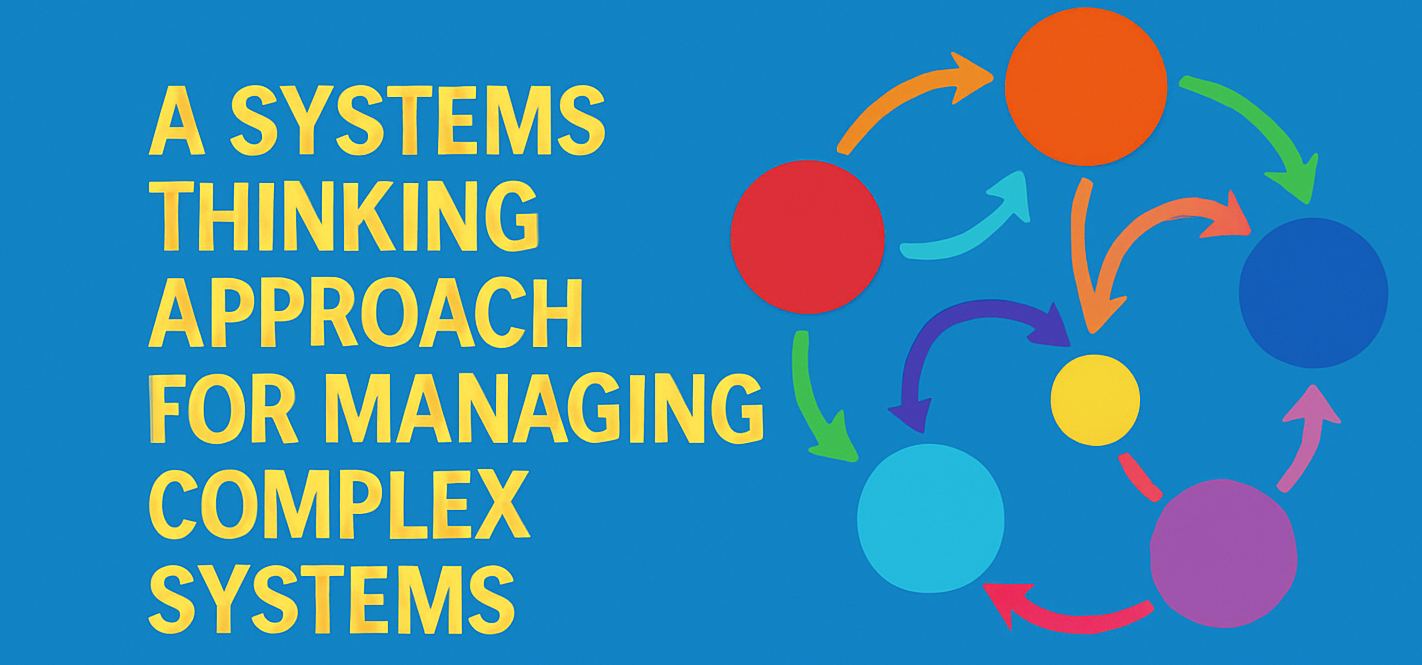Managing complex systems workshop

Free, download and read the notes even if you don't plan to attend. You might change your mind
This six-part workshop introduces participants to the principles of systems thinking and its application in managing complex systems
What you will learn
- Why some people can tackle complexity with ease while other struggle.
- A little known systemic and systematic approach to tackling complexity.
- A little-known tool that helps you formulate the correct problem. The tool will help you overcome one of the major reasons for project failure; solving the wrong problem.
- The nature of systems and systems of interest and why understanding that difference is critical to managing complex problems.
- The three types of emergent behaviour and how to predict one of them.
- The three structures of a problem and why you need to know them.
- The six levels of difficulty of problems and why they are important to you.
- The difference between research and intervention problems and why you need to understand the difference.
- The three domains of a problem
- More than 13 practical tools, techniques and templates to help you manage complexity
Who will benefit from attending this workshop
- Systems engineers eliciting and elucidating requirements for complex systems
- Project managers working on interdisciplinary initiatives
- Organizational leaders facing complex, multifaceted challenges
- Policy makers and public administrators
- Environmental and sustainability professionals
- Business analysts and consultants
- Healthcare administrators and practitioners
- Urban planners and community developers
- Educators and instructional designers
- Research and development teams
- Anyone else seeking to improve their ability to address complex problems
Structure of the workshop
The workshop is presented in a unique innovative way to fit into a 75 minute live session. It is actually a virtual two-day workshop containing six lessons. The workshop contains the usual three parts,
- A lecture.
- A hands-on exercise that allows the participants to practice the knowledge learned.
- A walkthrough of the exercise by the instructor commenting on the content and the way the information is presented.
Knowledge of systems engineering and project management is NOT required to participate in this workshop
Since the live contact time is limited to 75 minutes, the format of the workshop will be innovative and unique. It will not be a ‘sit back and listen’ type of workshop. It will be a hands-on experience in the Evercourse unique lifelong learning experience format.
Zoom URL for live session
The live session will be held between 11:15 – 12:30 Zurich time on 27 May 2025. If you can't attend the live session, perhaps you can attend the Thursday night continuing sessions; see dates and times below.
https://us02web.zoom.us/j/8605584221?pwd=WitZWmZ0eGU1SkNnNnEzM1JsNE04UT09
Meeting ID: 860 558 4221
Passcode: 73
Notes
Exercises are optional, but the benefit of the learning comes from doing the exercises and the thinking involved. If you don't attempt the exercises you are cheating yourself You don't need to complete an exercise before submitting it; partial submissions are accepted.
- The lecture is a pre-recorded video. Registered participants are expected to view the videos at least a week prior to attending the live session.
- The participants will then do one or more of the exercises which are to create PowerPoint presentations and email the presentations to the instructor at least two days before the live session. The instructor will then comment on the exercises during the 75-minute live session.
As there will be insufficient time to complete reviewing all the submitted exercises, in the live session, the live session will continue Thursday evenings at 8pm Zurich time, and 8pm New York starting 19 June 2025 using the same Zoom meeting ID and password. You may attend either or both sections
Bookmark this page and then scroll up to the top of the page and click on "start course"
What You'll Learn
- 1 Lesson 1 Introduction and baseline
- 2 Lesson 2 System and system of interest
- 3 Lesson 3 Active Brainstorming
- 4 Lesson 4 Hierarchies and emergence
- 5 Lesson 5 Complexity
- 6 Lesson 6 Managing complexity
